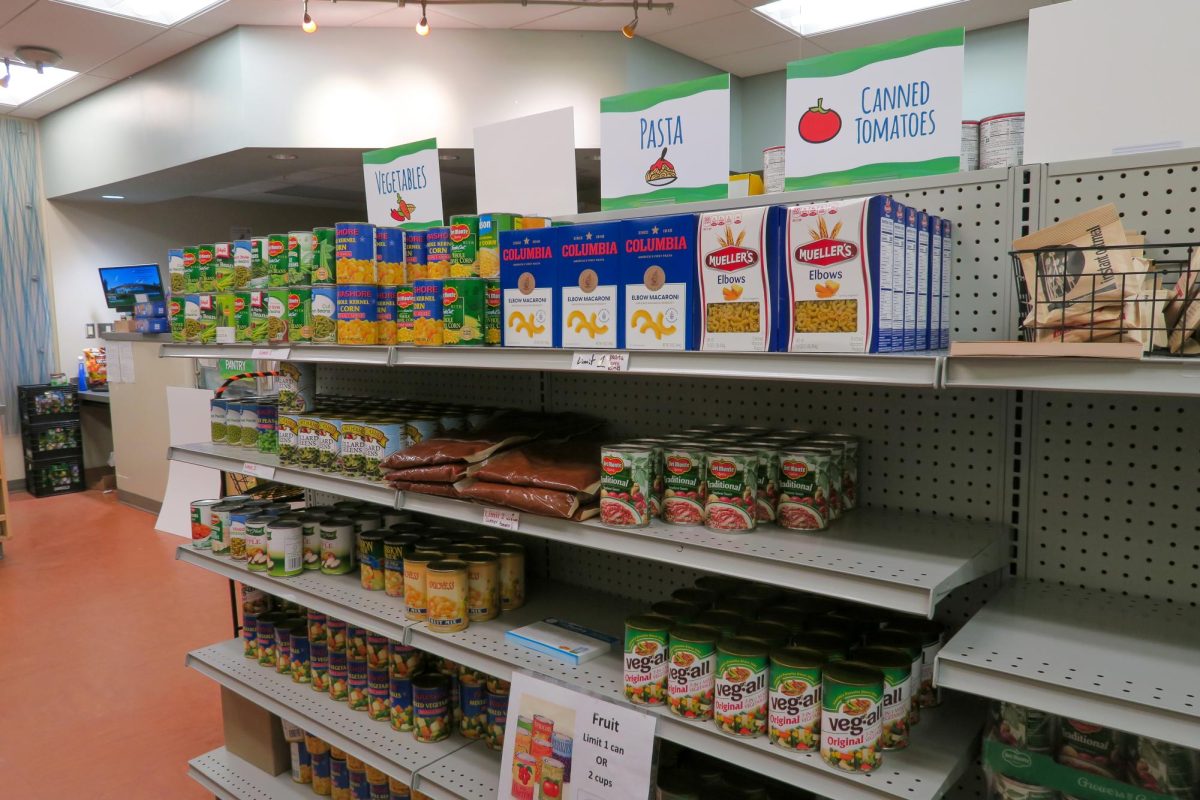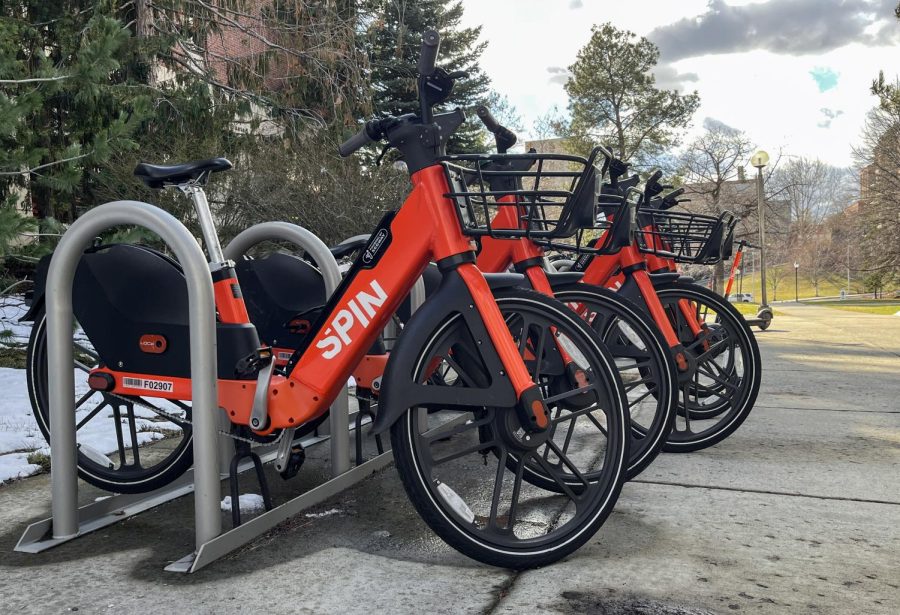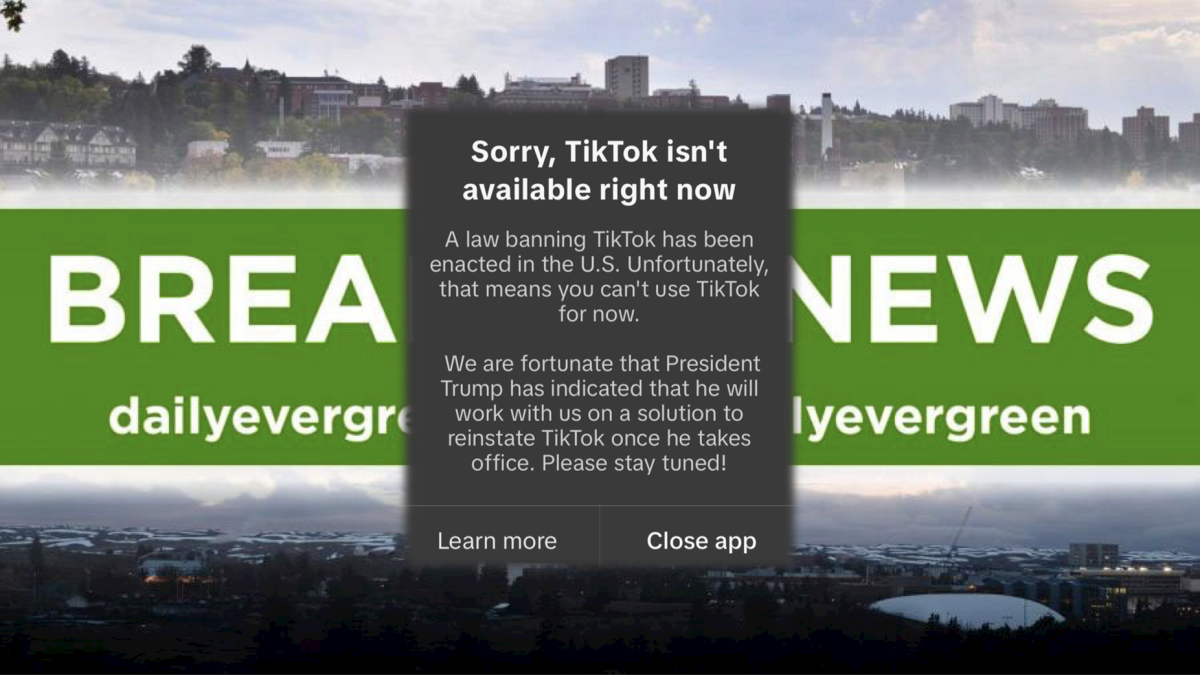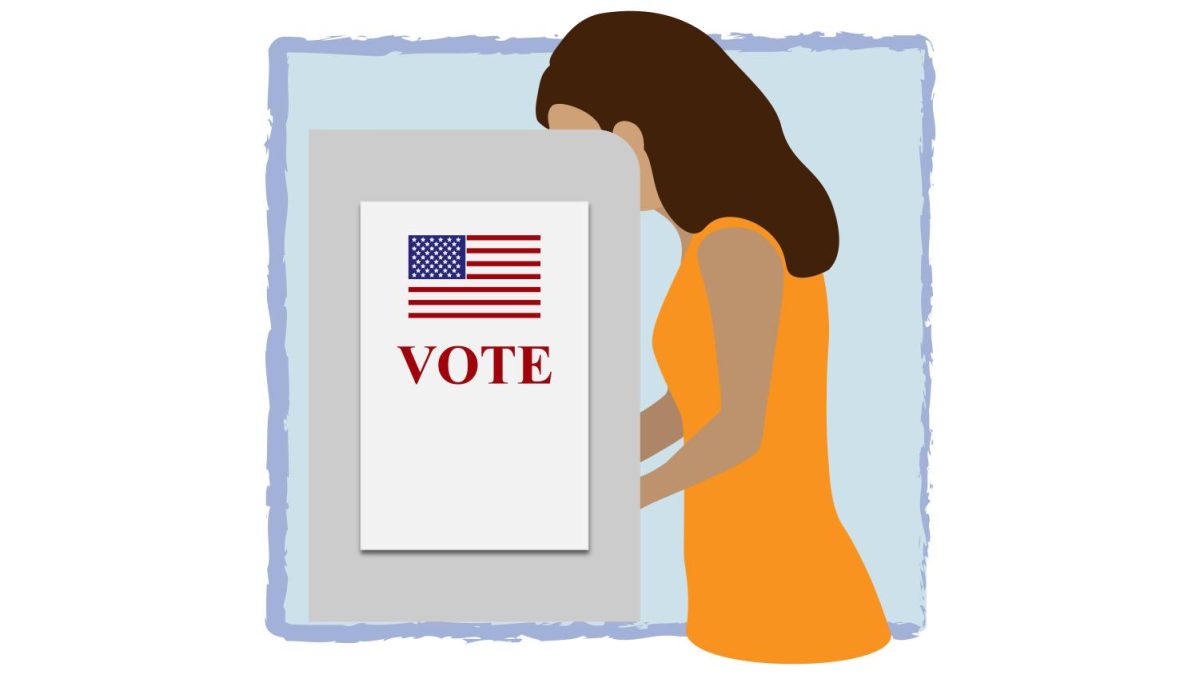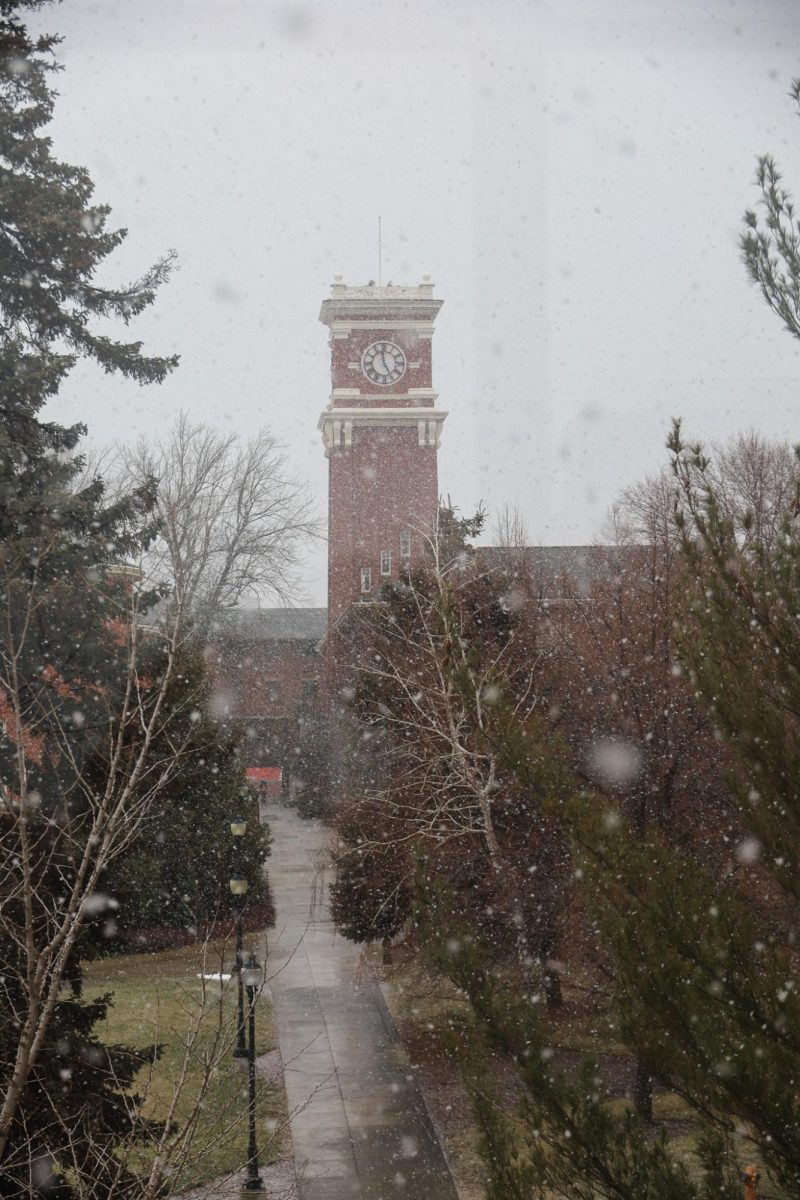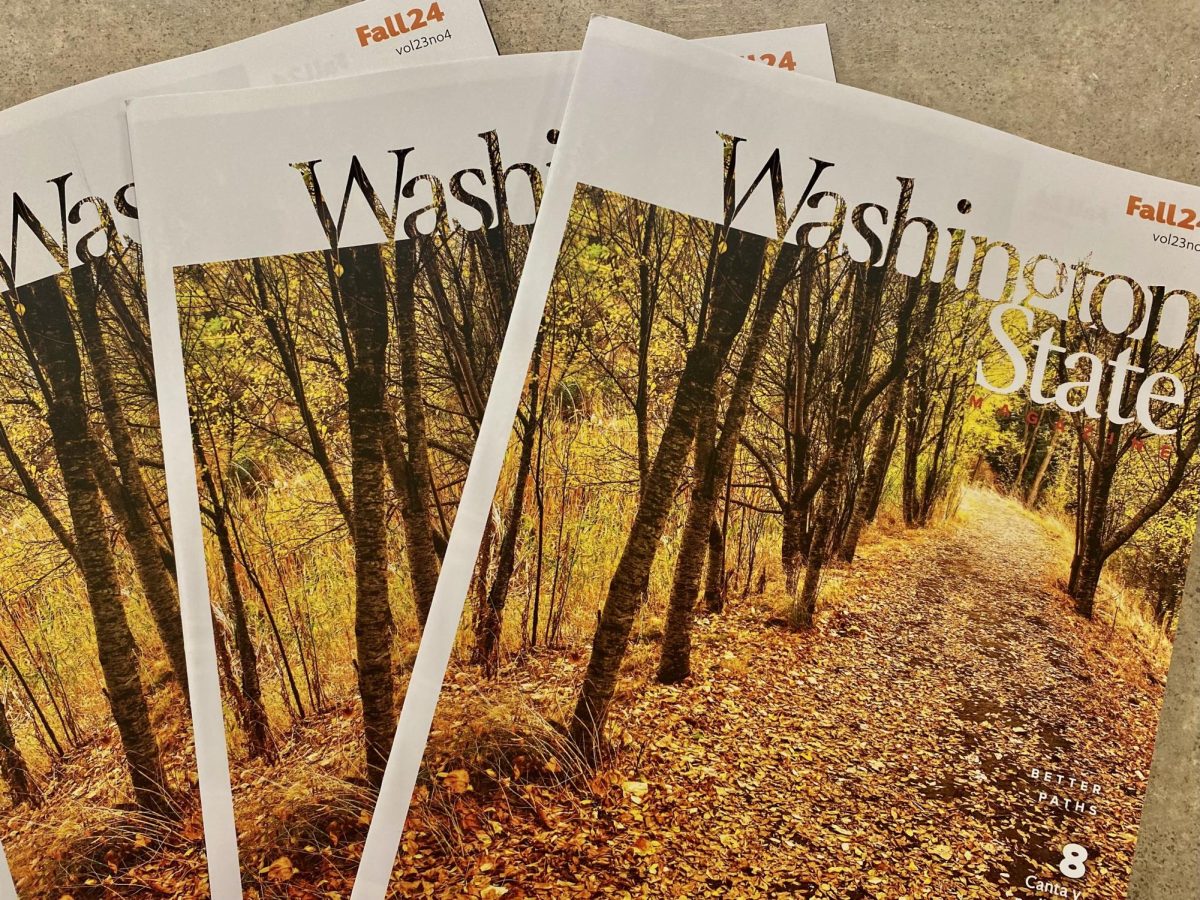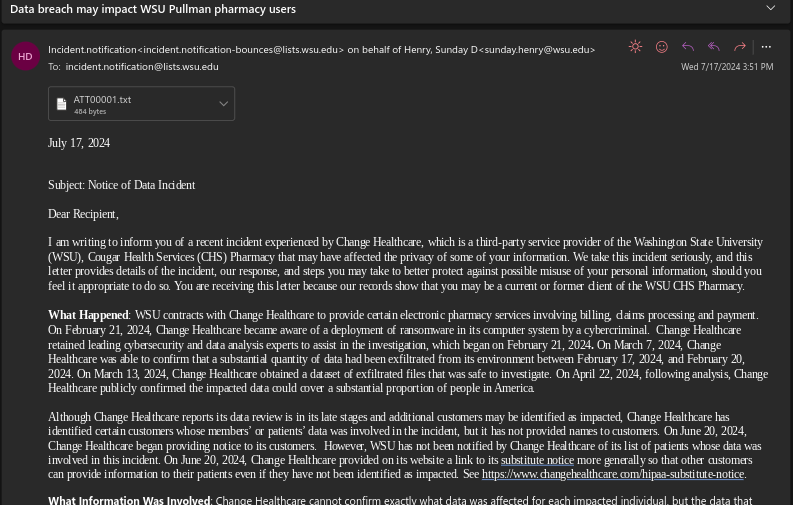The Cougar Food Pantry at the Compton Union Building is currently in the process of stocking up the pantry to prepare for winter break instead of distributing break boxes this year.
The distribution of break boxes, which was the pantry’s primary method of combating food insecurity among students for the break in the past, was only able to help a fraction of the students facing food insecurity, said Merri Lecoq, Cougar Food Pantry Coordinator.
The pantry distributed the break boxes for winter break the past two years, which students staying in Pullman over the break would sign up for, Lecoq said.
The boxes would contain approximately enough food to feed one person for 10 days, along with some snacks, Lecoq said. Due to limited materials, only 150 students were able to register to receive the boxes.
In an effort to help more students and reduce cost, the pantry has decided not to distribute the break boxes this year and instead allow students to stock up on any food items they may need, she said.
“What we found is that a lot of students weren’t getting what they needed for their nutritional or cultural needs,” Lecoq said. “And there’s only 150 students [who received boxes], and it’s a lot of money and a lot of time to do.”
The break boxes program was also very costly, due to the price of the boxes and the small number of students that the program actually helped, Lecoq said.
“This year instead, we’re going to stock the pantry with a lot of stuff and let people come that week before the school closure and just stock up and get the things that they actually do need,” Lecoq said.
The pantry will remain operational with its regular hours during the break as long as the CUB is open, Lecoq said. The pantry will be closed from Dec. 25-Jan. 2. This means that students will be able to stock up on food from the pantry up until Dec. 22.
Lecoq said there will be a variety of food items in stock, with the addition of various vegetarian, halal and kosher food options.
“We’re going to try to get some of the items that we don’t typically carry, because those would be good items for the break,” Lecoq said. “We’re also just going to make sure that we’re stocked up on the staples, like bread, peanut butter, and some fresh produce.”
Lecoq also said that they are hoping to offer some meat and milk options as well. In preparation for the break, the one item limit will be lifted from the pantry in order to allow students to get as much as they need.
“This is going to be, hopefully, a way that we can allow more equitable access to the pantry,” she said. “Instead of the first 150 students who happen to be the first to sign up, we can help everyone get what they need.”
Lecoq said she hopes that the pantry will be able to secure more funding in order to make the various new cultural and nutritional food options a part of the long-term stock at the pantry.
“I’m hoping that we can secure funds to get more items that students need, and make sure that dietary and cultural needs are met better,” Lecoq said.
Sandra Alvarez, AmeriCorps food security coordinator and food pantry employee, said there is a large stigma that typically surrounds the usage of food pantries and levels of food insecurity.
“There is such a stigma where people think ‘I don’t qualify,’ or ‘I have enough,’ but everyone needs food. It doesn’t matter who you are,” Alvarez said.
Elias Silva, animal science pre-vet major and Cougar Food Pantry assistant, said that the primary goal of the pantry is to help students, regardless of the level of food insecurity they are facing.
“I think a lot of times, students don’t want to come in because they think maybe it’s not what’s geared towards them,” Silva said. “But what we really want people to know is this for them, anyone can come in, as long as they’re a student.”
Currently, the pantry is entirely funded by undergraduate student fees, Alvarez said. She said she hopes for graduate student fee contributions in the future that will allow the pantry to expand their variety of food options and stock.
The Cougar Food Pantry has been able to make some small improvements this semester through the help of students in the engineering department, Silva said. They have been able to obtain carts for transporting food, as well as bigger scales to weigh inventory.
Alvarez said she hopes that students from other departments, such as marketing students, or those with an interest in nutrition and health will also extend their help to the pantry to spread the word.
Many students currently volunteer at the pantry, but more hands are always needed, Alvarez said. Food runs can be especially difficult work, as it involves carrying and transporting large amounts of food at a time.
Any students who are interested in volunteering at the pantry can sign up to help online on GivePulse or contact Lecoq at [email protected] .

